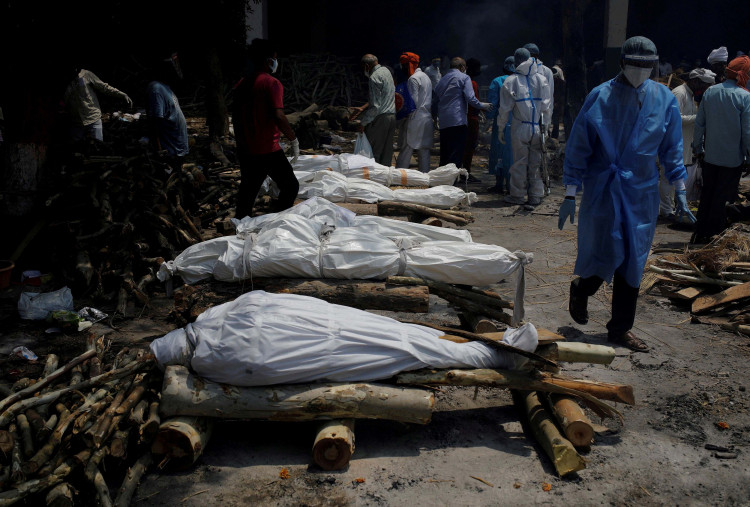India will start making COVID-19 vaccines available for everyone aged 18 and above next month, but some experts have laid out potential stumbling blocks along the way.
Inside India's National Vaccine Strategy
The third phase of India's vaccination drive will begin May 1, and persons who volunteer to get inoculated will be required to register. The volunteer will then be verified at the session site if the person presents a photo ID before the vaccination.
Registration will be done through the Aarogya Setu mobile app as well as the cowin.gov.in. In a tweet by Aarogya Setu, it was confirmed that registration will begin Wednesday.
The latest vaccination program will include 50 percent of monthly Central Drugs Laboratory (CDL) supplies from vaccine manufacturers to the central government.
For the rest of the doses, vaccine manufacturers can decide whether to supply the vaccines to markets and state governments. The open market channel is where private hospitals can order doses directly from manufacturers.
Hurdle No. 1: Pricing
So far, the Serum Institute of India has its Covishield vaccine priced at ₹400 ($5.37) per dose for states and ₹600 ($8.06) per dose for private hospitals.
Bharat Biotech has each dose higher, at ₹600 per dose for state governments, and ₹1,200 ($16.12) for private institutions.
The government has confirmed that Bharat Biotech's Covaxin, Covishield, and the Russian Sputnik V vaccine will be used in the third phase. However, the Indian government has also requested that the drug makers reconsider prices.
Demand for coronavirus vaccines is expected to climb during the third phase of the vaccination drive as more people in India seek to protect themselves from the virus.
However, some experts said vaccine prices are too high for some states that are already struggling to curb daily increases of new COVID-19 cases.
Hurdle No. 2: Adequate Supply
The government said at least 12 crore (10 million) citizens have received at least one dose of a COVID-19 vaccine.
The latest estimates on people above the age of 45 is at 29 million. There are also around three million healthcare workers at the frontline. India needs to have roughly 64 million doses of vaccines before April ends to secure two doses for the said groups.
Health experts have raised concerns about the potential shortage of vaccines at the height of the vaccination program, especially as India continues to grapple with record-high daily cases.
It is expected that around 16 million doses will be delivered before May 1. With maximum production capacity of Bharat Biotech and Serum Institute at 10 million doses per month, the numbers are still far from being reached.
Sputnik V vaccines will be coming soon, but talks with Pfizer, Johnson & Johnson, and Moderna have yet to materialize to let the much-needed vaccines in.
It was only two weeks ago when the government under Prime Minister Narendra Modi announced that it will finally start opening to foreign-developed vaccines. It pledged to hastening the process of approving vaccines developed out of home base.
Hurdle No. 3: Complacency
Aside from the technical details of the vaccination program raising questions about how successful this drive will be, there have also been concerns linked to opening the economy.
State governments are expected to discuss a proposal by the Union health ministry Wednesday regarding the potential lockdown of 150 districts with a COVID-19 positivity rate of more than 15 percent.
Some experts said the lockdown initiative may have been a little too late in India's current situation. With more than 300,000 daily infections per day since April 22, the issue can be traced back to the reopening that took place since March.
Virologist at the Trivedi School of Biosciences at India's Ashoka University, Dr. Shadid Jameel, said that after the government eased restrictions and seemed to send a message to the public about the virus being beaten, the "communication made people complacent."
Since the end of February, grand weddings have been allowed in many areas, political rallies that attracted thousands resumed, and lack of health protocols during festivals were apparent.
Even with the ambitious vaccination drive at hand, some health observers said having a complacent response to COVID-19 could pose a threat to the target of providing vaccines for everyone eligible in India.





